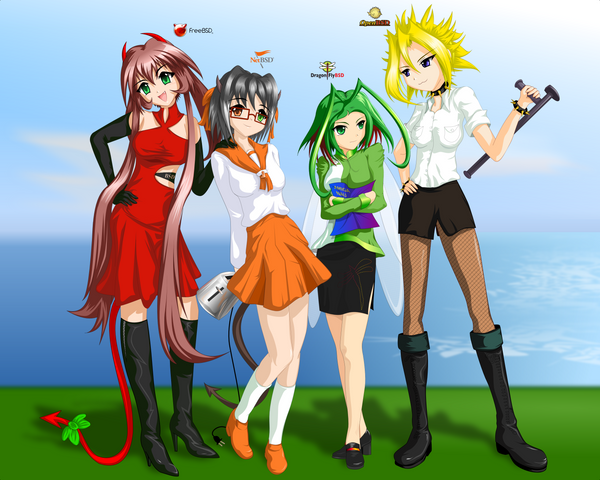elinscheid
Member
- Joined
- Jan 15, 2003
- Messages
- 185
Just curious about what you all think.
There was a time when a computer was a large machine that took up a whole room. Eventually they were small enough to fit on a desk. In the late 70s/ early 80s we had the first real "Personal Computers". Apple II, Commodore 64, Trash 80s and so forth. People could have their very own computers for home use. Video games, spread sheets, word processing...all kinds of stuff.
Anyway, a friend of mine was telling me how she purchased an Apple computer. So I asked her if she decided on a Macbook or a desktop model. She looked at me funny and said she had no idea what I was talking about. Turns out she had purchased an Ipad. So we have many people now days who think that a smart phone or a tablet is, in fact, their personal computer.
What qualifies as a personal computer now days? The truth is, the computer I use the most is my Android based Xperia Play. It is always on, it easily fits in my pocket and and it is the first computer I go to for...well...pretty much anything. Phone, music, movies, games, internet, Office work, note taking, social media...the list goes on.
So what do you think? Desktops are pretty much dead. Laptop sales are going down the toilet. My cell phone is with me all the time. If I'm not using it then it is in my pocket. No one every really uses my cell phone except me. So of all my computers, my Android phone is truly my "Personal Computer".
There was a time when a computer was a large machine that took up a whole room. Eventually they were small enough to fit on a desk. In the late 70s/ early 80s we had the first real "Personal Computers". Apple II, Commodore 64, Trash 80s and so forth. People could have their very own computers for home use. Video games, spread sheets, word processing...all kinds of stuff.
Anyway, a friend of mine was telling me how she purchased an Apple computer. So I asked her if she decided on a Macbook or a desktop model. She looked at me funny and said she had no idea what I was talking about. Turns out she had purchased an Ipad. So we have many people now days who think that a smart phone or a tablet is, in fact, their personal computer.
What qualifies as a personal computer now days? The truth is, the computer I use the most is my Android based Xperia Play. It is always on, it easily fits in my pocket and and it is the first computer I go to for...well...pretty much anything. Phone, music, movies, games, internet, Office work, note taking, social media...the list goes on.
So what do you think? Desktops are pretty much dead. Laptop sales are going down the toilet. My cell phone is with me all the time. If I'm not using it then it is in my pocket. No one every really uses my cell phone except me. So of all my computers, my Android phone is truly my "Personal Computer".


